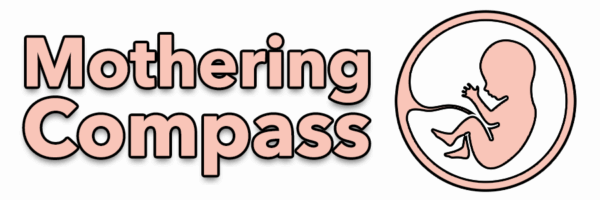Postpartum Meaning: Understanding the True Depth of the Fourth Trimester
The word “postpartum” is often associated with depression or difficulty, but its full meaning is far more expansive. Postpartum refers to the critical period following childbirth—sometimes called the “fourth trimester”—when a mother’s body, mind, and environment adjust to the immense changes brought on by pregnancy, birth, and the presence of a newborn.

Understanding the postpartum period is essential not only for new mothers but for partners, families, employers, and society at large. It’s a time of both healing and transformation—and when approached with care and awareness, it can become one of the most grounding and powerful chapters in a mother’s life.
Defining the Postpartum Period
Medically, “postpartum” refers to the first six weeks after birth. However, many experts argue that true postpartum recovery can take several months—or even up to a year.
Postpartum includes:
- Physical healing from delivery (vaginal or cesarean)
- Hormonal fluctuations
- Breastfeeding adjustments
- Sleep deprivation and energy shifts
- Emotional and psychological transitions
- Redefining roles and family structure
It is a time of recalibration. The body is still working hard—shrinking the uterus, balancing hormones, producing milk, and healing tissues.
The Fourth Trimester Philosophy
More than just a technical term, the “fourth trimester” emphasizes the importance of treating postpartum as a continuation of pregnancy. The baby is still developing sensory systems, rhythms, and attachment outside the womb. Likewise, the mother is undergoing major transformations that deserve support and recognition.
Advice for new moms can help reduce overwhelm. Read trusted insights that make early parenting manageable.
Rather than expecting a mother to “bounce back,” the fourth trimester philosophy encourages:
- Rest
- Gentle nourishment
- Skin-to-skin bonding
- Minimal overstimulation
- Emotional validation
It’s not about returning to “normal”—it’s about integrating a new reality, slowly and holistically.
Physical Recovery After Birth
Whether a mother had a vaginal delivery or a cesarean section, physical healing takes time. Common experiences include:
- Vaginal soreness or tearing
- Bleeding (lochia) lasting several weeks
- Uterine contractions (afterpains)
- Cesarean incision healing
- Breast engorgement or nipple pain
Pelvic floor recovery and abdominal muscle repair (especially if diastasis recti occurred) are also key components. Postpartum checkups should be thorough and honest—this is not just a “rubber stamp” visit.
Mothers should never hesitate to ask questions, request referrals (e.g. pelvic floor physiotherapy), or express concerns.
From highs to lows, postpartum hormones shape the early weeks. Read how to understand and cope with them.
Hormonal Shifts and Mental Health
Estrogen and progesterone drop sharply after birth, which can impact mood, cognition, and emotional balance. For many women, this contributes to what is often called the “baby blues,” affecting about 70–80% of mothers within the first few weeks.
However, if symptoms persist or intensify, it may be more than just temporary adjustment:
- Postpartum depression (PPD): Deep sadness, irritability, disinterest in bonding or care, guilt
- Postpartum anxiety: Racing thoughts, intrusive worries, panic, insomnia
- Postpartum psychosis: Rare but severe—delusions, confusion, paranoia, risk of harm
These conditions are medical, not moral. Support, therapy, and sometimes medication are critical tools, not signs of weakness.
Redefining Identity and Self
One of the most underrated aspects of postpartum is the shift in personal identity. Becoming a mother is more than a role—it can be a complete transformation of how a woman sees herself, her time, her body, and her purpose.
Common internal questions:
- Who am I now, beyond being a mother?
- Why do I feel distant from my old self?
- What if I don’t enjoy this as much as I expected?
These are normal, healthy reflections. Postpartum is a time for inner rebuilding—not judgment.
Social and Cultural Expectations
In many modern societies, postpartum support is lacking. There is pressure to “bounce back,” return to work quickly, host visitors, or appear cheerful. This pressure can be toxic.
In contrast, many traditional cultures emphasize:
- Confinement periods (e.g., 40 days of rest)
- Warm, nourishing foods
- Physical and emotional caregiving
- Protection from outside stressors
Reframing postpartum as sacred—not secondary—can radically improve maternal health outcomes.
Role of Partners and Community
Postpartum recovery is not a solo mission. Partners, family, friends, and employers all play a role in supporting new mothers.
Ways to support:
- Take over chores or errands
- Prepare nourishing meals
- Encourage rest and naps
- Listen without offering fixes
- Watch for signs of emotional distress
Even small acts of presence and validation can help a mother feel seen and valued.
Discover why empowering parents benefits not only them but also their children. Learn practical ways to do it.
Returning to Work and Social Life
Reentry into the workforce or social settings can be jarring. Physical discomfort, breastfeeding schedules, and emotional sensitivity don’t disappear when maternity leave ends.
Mothers should be encouraged to:
- Set boundaries with coworkers or family
- Advocate for flexible or part-time transitions
- Decline invitations that feel overwhelming
- Communicate needs clearly and without guilt
Postpartum is a period of renewal—honor your own pace.
Long-Term Postpartum Considerations
Even months after birth, many mothers experience lingering effects:
- Hair loss
- Joint instability
- Fatigue
- Emotional flatness
- Sexual discomfort
These are all valid and treatable. Just because it’s “months later” doesn’t mean you should feel “back to normal.”
Postpartum is not a finish line—it’s a continuum. Mothers deserve long-term care, not just a six-week checkup.
Of course this is just a blog, and we are often just speculating in comparison to hard science. If you want to take your research further, we suggest the Mayo Clinic article here to go deeper on the meaning of postpartum.
Final Reflection
The postpartum period is powerful. It reshapes the body, rewires the mind, and redefines the soul. Far from being a hidden footnote, it is a sacred space of renewal, growth, and deep connection between mother and child.
Understanding the true meaning of postpartum allows us to offer what mothers really need: rest, respect, and unwavering support.
